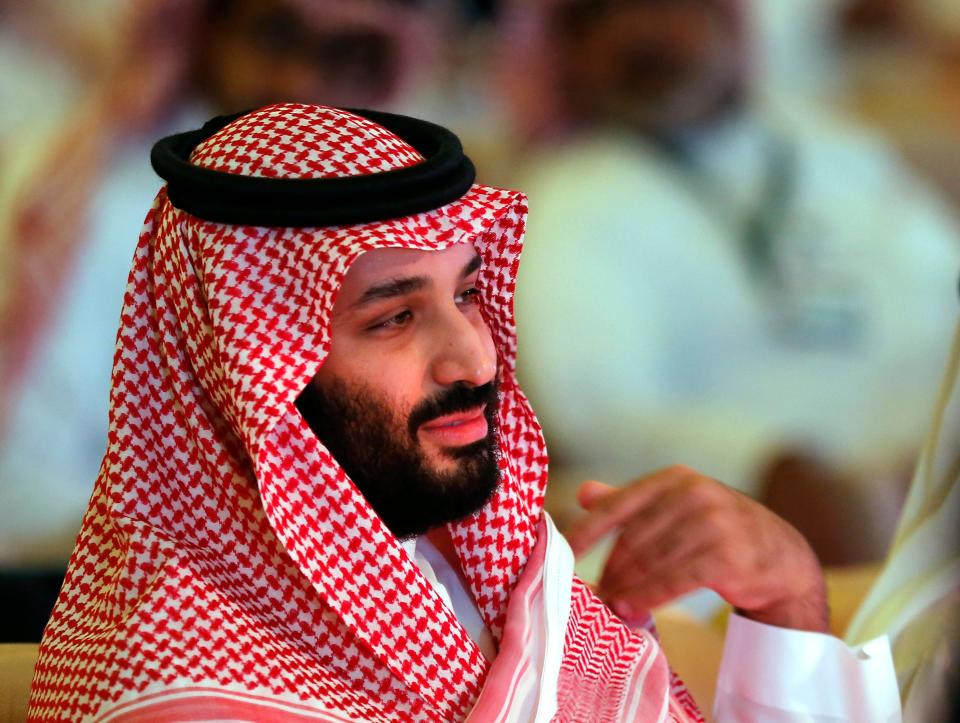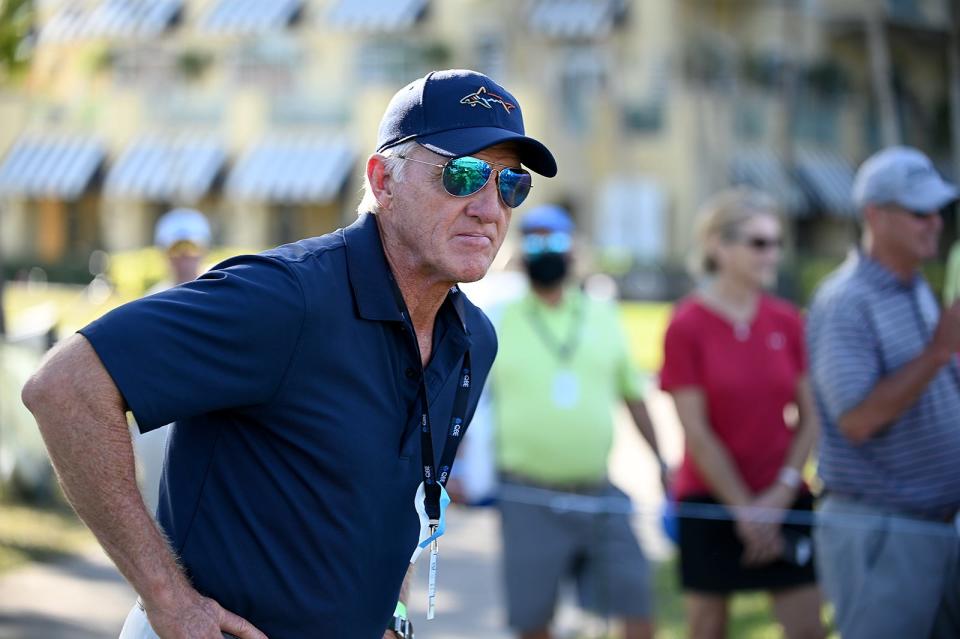Before you hate Phil Mickelson, LIV Golf and his new Saudi friends, visit the gray area
- Oops!Something went wrong.Please try again later.
- Oops!Something went wrong.Please try again later.
Sometimes the Echo Chamber is right and just.
Generally speaking, we’re all for good and against bad. At least in the abstract.
Things get fuzzier and gray areas appear when we add carbon and all the other biomolecules that make up the human body — you know, when we start drawing dividing lines between the “good guys” and the “bad guys.”
Often, the Echo Chamber draws the dividing line quickly and so decisively, you’re hesitant to do anything but jump on board and lock in your belief system and rooting interest.
LEFTY: The Mickelson book offers some of the promised dirt, but plenty of good too | KEN WILLIS
FIRST INDY: They're right, you gotta see the Indianapolis 500 to fully appreciate it | KEN WILLIS
Maybe you’ve been considering that phenomenon recently as it’s become a foregone conclusion that Phil Mickelson, Dustin Johnson and others are nothing but club-wielding mercenaries out to further enrich themselves without giving proper care to the wells (quite literally) from which their amazing new riches have bubbled.
In other words, Saudi Arabia: Bad. And the Saudi-backed LIV Golf Series, which began Thursday in London: Bad by association.
Therefore, golfers signing on to that new league, funded entirely by Saudi funds — funds designed to promote the Kingdom and its modern sporting interests — is an obviously unsightly move. Particularly when it’s against the wishes of the American golf league that provided the stage on which they became famous and famously wealthy.
There you go, case closed. Right?
I count myself among those who wish the Saudi desire for improved public relations had never connected with Greg Norman’s long-awaited desire to harpoon the PGA Tour. At least in the short term, it has screwed up a lot of reputations and careers while promising to bandage the wounded with greenbacks.
But I temper the outrage just a bit. Maybe it comes with a growing odometer, but you live long enough and see enough of these “cut-and-dry” cases, you can become hesitant to jump in with the parade of opposition. Not without some consideration.
Gray areas, you know. Without ’em, we might never leave the house.
Consider: The President of the United States will soon travel to Saudi Arabia, proverbial hat in hand, to visit Saudi’s Crown Prince Mohammed bin Salman, hoping he’ll turn the valves a bit more lefty-loosey in order to raise the output of oil and lower prices at the pump.
This is the same Crown Prince, mind you, our intelligence services say ordered the brutal 2018 murder of journalist Jamal Khashoggi, whose work occasionally appeared in the Washington Post.
And consider: “The enemy of my enemy is my friend,” an old saying that’s held up since the first time ancient man wandered into another ancient man’s territory. It comes to mind when you see the following words:
“The United States and Saudi Arabia have a common interest in preserving the stability, security, and prosperity of the Gulf region and consult closely on a wide range of regional and global issues.
“Saudi Arabia plays an important role in working toward a peaceful and prosperous future for the region and is a strong partner in security and counterterrorism efforts and in military, diplomatic, and financial cooperation.”
Greg Norman didn’t say that. Neither did Phil Mickelson.
That’s from our nation’s State Department. Here are some more snippets from the official reference to our relationship with Saudi Arabia . . .
“The United States and Saudi Arabia also enjoy robust cultural and educational ties” . . . “The United States and Saudi Arabia have a longstanding security relationship” . . . “Saudi Arabia is the United States’ largest foreign military sales (FMS) customer, with more than $100 billion in active FMS cases” . . .
“The U.S.-Saudi partnership is rooted in more than seven decades of close friendship and cooperation, enriched by the exchange opportunities that are key to the promotion of mutual understanding and the long-term development of ties between our two peoples.”
Yep, it’s complicated. At least at the international diplomacy level. Down at the first tee, apparently, it’s not so complicated. The jury has rendered its verdict.

And speaking of popular opinion, you can’t help but wonder how much of this resentment is due to the general consensus about golfers. The “country club set” is looked at differently, particularly when it’s a matter of trading riches for ungodly riches.
It’s assumed they’re all the products of gated communities — maybe not exactly born into the lap of luxury, but within arm’s reach. In some cases, that’s true. Some cases.
But unlike other areas of the entertainment, academic and political worlds, athletes must prove themselves and can’t simply ride their pedigrees to the land of fame and comfort. Golfers, particularly, are singularly responsible for their success or failure.
Technically, they're independent contractors in charge of their destinies. But like free speech, there are limits to how independent an independent contractor can be. The debates come when the arbiters are selected.

Along with the political and societal components of this ongoing drama, a wide-view issue is the Saudi effort to disrupt the long-standing order of international golf. While some will always clamor for changes around the fringes, so to speak, generally speaking we’ve had a good thing going in the men's game.
Two major world tours, four major championships, a treasured record book and marvelous history. That's unlikely to be threatened.
From a public relations standpoint, the PGA Tour has benefited from this fissure. Often ridiculed for its business practices and strategic secrecies, nowadays it’s the put-upon and benevolent facilitator of righteous and proper professional golf.
Strange times. But rest assured, somehow or other, it’ll all shake out because it always has. Our government leaders will always make nice with some who have debatable credentials, and our athletes and their employers will sometimes do the same.
Money talks, and gas prices are soaring.
It should upset you, of course, and it should always be held up to the light. But again, a world without gray areas would likely be uninhabitable.
— Reach Ken Willis at ken.willis@news-jrnl.com
This article originally appeared on The Daytona Beach News-Journal: Mickelson, the Saudis, high gas prices and Joe Biden? it's complicated

